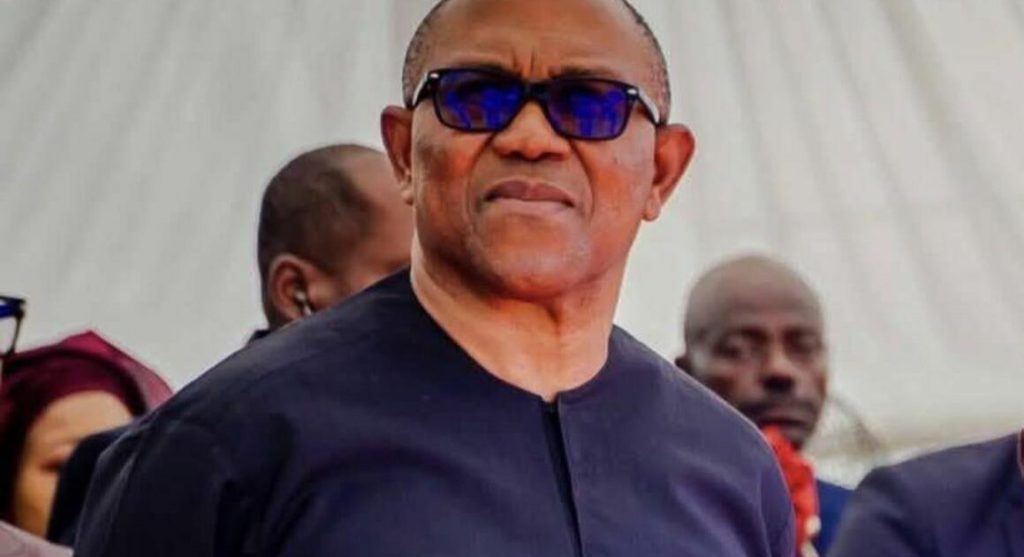A significant political meeting took place on Friday at the Abeokuta residence of former President Olusegun Obasanjo, bringing together members of the Oba Olaitan Oladapo faction of Afenifere, a prominent Pan-Yoruba socio-political group, and loyalists of Peter Obi, the Labour Party’s 2023 presidential candidate. The meeting, which centered on crucial national issues, including the 2027 presidential election, signals potential political realignments and strategies for the upcoming electoral cycle. Sola Ebiseni, Secretary General of the Afenifere faction, confirmed the meeting in a statement, revealing the presence of key figures like Prof. Akin Osuntokun, Obasanjo’s former political adviser, and John Ughulu, Obi’s 2023 Presidential Campaign Coordinator in Lagos. This convergence of influential political actors underscores the significance of the discussions held.
Following the closed-door meeting, Prof. Osuntokun addressed journalists, emphasizing the principle of shared national ownership and leadership. He stressed that no single region holds an exclusive right to the presidency, asserting that such a notion undermines national stability and democratic growth. This statement reflects a push for a more inclusive and equitable power-sharing arrangement in Nigeria, challenging the idea of regional entitlement to the highest office. It suggests a move towards building broader political alliances that transcend regional and ethnic lines, potentially fostering greater national unity and cohesion. Osuntokun’s remarks underscore the importance of reflecting the collective aspirations of all Nigerians in the leadership selection process.
Ebiseni, also present at the meeting, welcomed the emergence of opposition coalitions vying for the 2027 presidency. However, he cautioned that only a truly broad-based grand coalition, respectful of the established principle of regional rotation, would hold any meaningful impact. He referenced the formation of the All Progressives Congress (APC) in 2013 as a successful example of a coalition that strategically aligned with the popular sentiment of regional rotation, ultimately leading to Buhari’s succession of Jonathan. This historical context highlights the effectiveness of strategic alliances and adherence to power-sharing principles in achieving electoral success. Ebiseni’s remarks suggest a call for a similar approach in 2027, advocating for a coalition that prioritizes regional balance and fairness.
Ebiseni further emphasized the importance of respecting the eight-year tenure of the South, asserting that it is not merely about individual political actors or parties but a crucial consensus for regional mutual respect and national political stability. This reinforces the argument for upholding the principle of regional rotation, suggesting that deviating from this established norm could threaten the delicate balance of power and potentially destabilize the nation. He framed the eight-year Southern tenure as a non-negotiable element of maintaining political harmony and avoiding potential conflict. This strong stance underscores the importance of adhering to power-sharing agreements to ensure national stability and prevent the emergence of regional grievances.
The meeting between Afenifere members, Obi loyalists, and former President Obasanjo signifies a potential shift in the political landscape. This gathering could be the starting point for the formation of a formidable coalition that aims to challenge existing power structures and reshape the future political trajectory of Nigeria. The emphasis on national unity, inclusivity, and regional rotation suggests a desire for a more equitable and representative leadership, potentially leading to a more stable and prosperous Nigeria. The participants’ focus on these key principles could attract a wider range of political actors and voters, solidifying their position in the run-up to the 2027 elections.
The discussions held at Obasanjo’s residence highlight the growing recognition of the need for a more inclusive and representative political system in Nigeria. The emphasis on national unity, regional rotation, and respect for established power-sharing agreements suggests a growing desire to move beyond divisive politics and build a stronger, more united nation. The potential alliance emerging from this meeting could significantly impact the 2027 elections and shape the future political landscape of Nigeria. By prioritizing these principles, the prospective coalition aims to foster greater national unity, stability, and democratic growth. The meeting serves as a crucial step towards potential political realignments and the formation of a powerful force in the upcoming electoral cycle.


